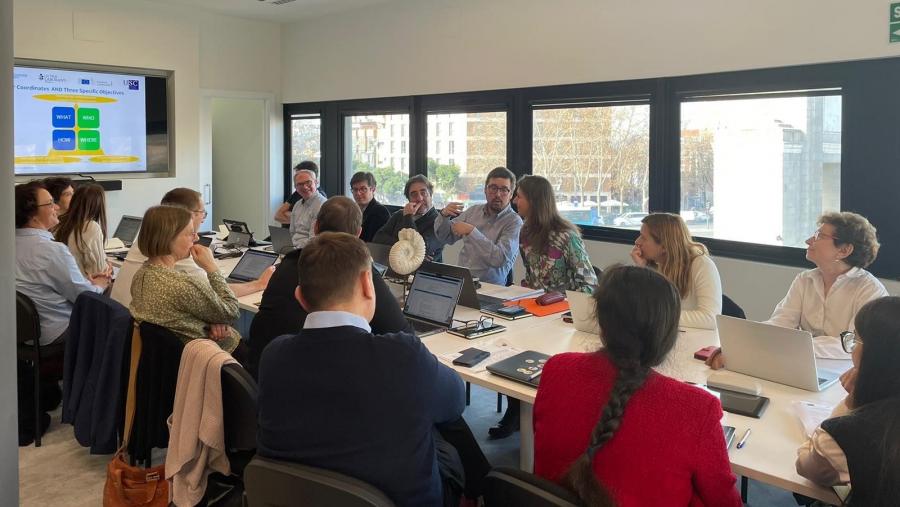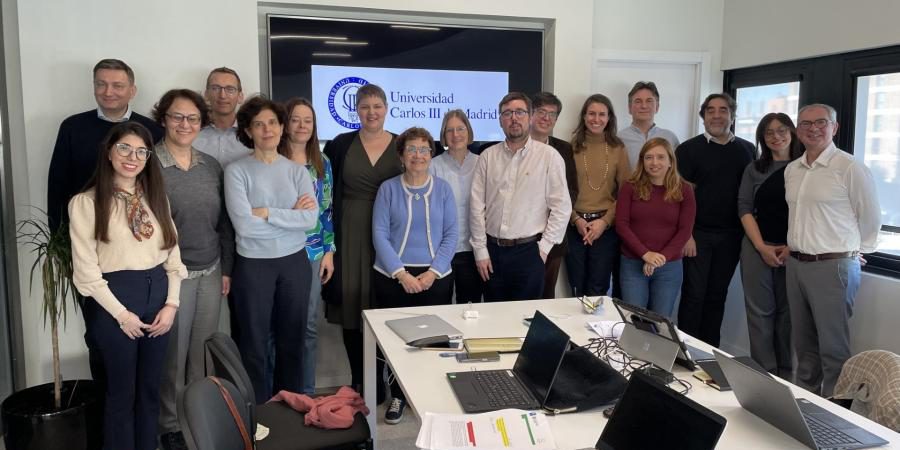First Steering Committee of the DIGILARE project
Last 1st and 2nd of February took place the first Steering Committee of the DIGILARE project, at the University Carlos III of Madrid. During two days of intense work, the first results of the theoretical analysis of the scope of application of information and consutlation rights in the EU Directives were presented to the team members and the working documents for the first Transnational Seminar, to be held in Vienna in June 2024, were prepared.

The DIGILARE project aims to provide a comparative analysis of how national systems of labour relations respond, at company level, to the challenges linked to digital work and the digitalisation of labour relations, with the aim of eventually strengthening the structures of labour relations in Europe.
The proposed research is based on four “coordinates”. The first one refers to the inclusion of non-standard workers, including those who work on platforms, in the subjective field of information and consultation rights. The second “coordinate” deals with the applicable law: which national rules on information and consultation apply in a cross-border context, especially in the context of teleworking.
Thirdly, the project analyses the different national approaches to putting digital representation rights into practice, “for example, the possibility of digital meetings, assuming that the greater the possibilities of participation, the more the under-represented groups, such as women, carers or people with disabilities, will be more strongly involved”, say the project coordinators. Finally, as a fourth “coordinate”, the rights of participation in the workplace will be assessed with regard to the transition to a climate-neutral economy and the protection of human dignity when using digital surveillance tools or artificial intelligence systems.
The consortium is composed of three beneficiaries (University of Santiago de Compostela, Universität Wien and ASTREES) and 15 associated members. The team is composed of 23 researchers from 15 countries (14 Member States and Turkey) and is led by Professor Miranda Boto and Professor Elisabeth Brameshuber from the University of Vienna. Under the same leadership, the team previously implemented the COGENS project, which resulted in an open access monograph.
The European Commission, through its specific funding line for the promotion of social dialogue in Europe, co-finances the initiative. The work programme includes a transnational seminar in Vienna in June 2024, a second seminar in Budapest in February 2025 and a final conference in Santiago de Compostela in September 2025, which will be attended by more than a hundred academics and practitioners of labour law, including a strong representation of social partners, both members of trade unions and national and European employers’ organisations. The main scientific results will be collected in a new monograph published in open access and in a policy paper that will be translated into all the languages of the participating countries.

